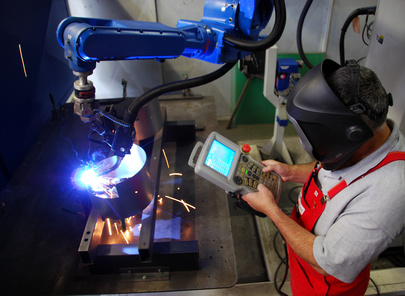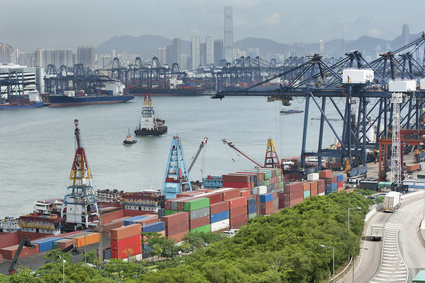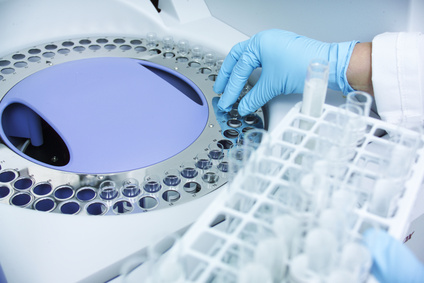CCC: Upcoming mandatory CCC Certification for Warning Triangles
Since 2003 there has been a GB Standard for warning triangles (GB stands for Guobiao, Chinese for National Standard). GB 19151-2003 defines the scope, parameters and prescriptive limits for product testing required for the CCC certification.
Some of the criteria for the testing of warning triangles include:
- Shape and dimensions
- Photometric Specifications
- Colours
- Materials
- Temperature and water resistance
- Wind stability
CQC (China Quality Certification Centre, Chinese: 中国质量认证中心) and CCAP
(China Certification Centre for Automotive Products, Chinese: 中汽认证中心) are the authorized authorities in China to perform CCC certifications for automotive products.
Neither the CQC nor the CCAP has published any official announcements regarding the details about when CCC certification for warning triangles actually becomes mandatory. Test costs and implementation rules, which state the prescribed method of obtaining the certification and required marking of the product with the CCC logo, are also still unknown.
Only after determination of the test costs and the official announcement of the implementation rules will the Chinese authorities accept CCC applications.
At this time, there is only the option to run through a voluntary CQC certification. The process would be the same as the expected CCC certification process. When CCC becomes mandatory, the CQC certificate can be used to obtain a CCC certification.
If you are interested in being proactive and obtaining a quote for CQC certification or would like more information, please do not hesitate to call or email us. We will be happy to provide you with a quote or to answer any questions or concerns you may have.

For manufacturers of warning triangles it is challenging to estimate the full costs for CCC certification. But we will inform you about any news and announcements regarding this matter in our “News” section on our website. Our close relationships with the certifying authorities often allow us to provide you with these updates first, before they are officially announced or implemented.
Information regarding GB-Standards, CCC certification, the certification process and the costs can be found on our website. You will also find details regarding our certification package on our website including a general anticipated time frame. Take a look at our references section to see a list of some of our clients and what they are saying about us. For more detailed information please download our free booklet “CCC Made Easy” here.
You may also consider our book “A Brief Guide to CCC: China Compulsory Certification”, which can be ordered directly on Amazon here.
Please do not hesitate to call or email with any questions you may have.
CCC: Adjusted GB-Standard for welding machines will be implemented
The chinese authority CNCA (Certification and Accreditation Administration of the People’s Republic of China) announced the implementation of the adjusted GB Standard 15779 (GB stands for Guobiao, Chinese for “National Standard”) regarding welding machines. Starting August 7, 2014 new product testing for welding machines will be required for CCC certification.
The new revisions are specific to the type of the welding system (arc welding, resistance welding, gas welding, etc.), and will require that the product test for the CCC certification meet new guidelines. Some of the differences will be related to:
• Product handling
• Coolant and pressure ranges
• Safety measurements
• Minimum power level
• Load voltages
However, the GB changes will affect only new applications for CCC certificates, current holders of CCC certificates for welding machines will not need to run new product tests.
In 2011, the CNCA implemented changes for the CCC requirements in regards to welding machines and welding equipment. Those changes became effective in January 2012.
China Certification will continue to inform you about changes of GB-Standards.

In our “News” section we will also keep you informed about all other announcements of the Chinese authorities. Please check our website regularly since these official announcements are often made without any advanced notice.
Information regarding GB-Standards, CCC certification, the certification process and the costs can be found on our website. You will also find details regarding our certification package on our website including a general anticipated time frame. Take a look at our references section to see a list of some of our clients and what they are saying about us. For more detailed information please download our free booklet “CCC Made Easy” here.
You may also consider our book “A Brief Guide to CCC: China Compulsory Certification”, which can be ordered directly on Amazon here.
China Certification consults you for all GB-Standards and supports you during the complete certification process:
• Straightforward, transparent handling of the certification process
• All-inclusive consulting through our German, Chinese and US based offices
• Regular updates and information regarding the certification progress
• Important contacts to all relevant Chinese institutions
• No Chinese language skills required, we will handle all of the necessary communications with the certifying authorities and test labs for you
Please do not hesitate to call or email with any questions you may have.
Customs Clearance: The importance of China export market still grows

The economic growth of China has consistently provided business opportunities for the US, Europe and other countries world-wide over the last decade. Going forward the projected annual GDP growth rate of 7.5 % leaves no doubt that this trend will continue for the foreseeable future. With a strong start to 2014, these projections are supported with by early numbers showing a tremendous increase of the Chinese imports of approximately 10% already.
China has become the second largest importer of goods world-wide, with growth forecasts showing opportunities in key industries – such as the automotive industry, medical device technology, machinery and equipment and other high-grade consumer goods. According to a statement by Germany Trade & Invest (GTAI), China has become the fifth most important export market for Germany with a delivery volume valued at 70 billion euros.
For manufacturers it is important to check the requirements of exporting in advance. Particularly, to clarify what kind of certifications or registrations are required for the products in order to avoid any problems and/or delays at Chinese customs.
One mandatory certification for the Chinese market is for example the CCC-certification (China Compulsory Certificate). The respective product groups, which require a CCC certification, are defined in an official catalog of the AQSIQ (General Administration of Quality Supervision, Inspection and Quarantine) and CNCA (Certification and Accreditation Administration). If CCC is required it is important to understand the relevant Chinese GB Standard (GB stands for guobiao) and the implementation rules. A review of the CCC responsibility on the basis of the customs tariff number (HS code) is not recommended, because HS codes are regularly updated by Chinese customs, but changes are not automatically adopted by CNCA and AQSIQ – which can result in misunderstandings and delays.
Additionally, for certain electronic and medical products, the CEL-certification (China Energy Label) and CFDA-certification (China Food and Drug Administration) are also necessary.
It is also important to note that, in a shipment of used mechanical and/or electronic products, a pre-shipment inspection in addition to various certification requirements must be carried out by an agency, authorized by Chinese authorities.
If you want to learn more about the export, customs clearance and the certification of your products please check our Customs Clearance-section of our website. For more detailed information please download our free booklet “Customs clearance China” here.
Please do not hesitate to call or email us with any questions you may have.
Publication: New article on new regulations for the CFDA certification published in British professional journal
In the latest publication on the new regulations for the certification of medical devices,
Mr. Julian Busch (managing director of MPR GmbH) outlines the critical changes which are compulsory for new medical device applications at the China Food and Drug Administration (CFDA, Chinese: 国家食品药品监督管理总局). The article is titled “An Update on the Regulatory Process in China” and was published on the April 10, 2014 on the British website “European Medical Device Technology” (abbr. EMDT). This article is in reference to the
CFDA announcement from February 2014 regarding changes for medical devices which have now been officially published.
In order to ensure compliance with the amended regulations for medical devices, the penalties for any delinquency or any non-compliance have been increased. Penalties of up to 20 times the value of the imported goods are possible. Likewise, the Chinese government has implemented the legal basis to remove already certified medical devices from the market on short notice.
In addition to the general discussion of the regulation changes, the article provides a general overview of the CFDA registration process, as well as current and future status of the Chinese medical device market. The article also reflects the historical developments as well organizational and personal changes within the authority CFDA: As a result of several food and corruption scandals the CFDA was put under the supervision of the State Council and reports to the Chinese Ministry of Health (MOH). In the process of restructuration also the name of the body was changed from SFDA (State Food and Drug Administration) to CFDA.
CFDA: Chinese medical device market shows constant growth
International exporters are still struggling with the slow recovery of the global economy, however emerging markets such as the People’s Republic of China have become an important stimulus for the world economy. As in previous years, China is again identified as the biggest driver of global economic growth. According to a publication of the Germany Trade & Invest (GTAI), a growth rate of 7.5% and 7.3% is estimated for 2014 and 2015 for China.
For the last several years the automotive and chemical industries have seen exponential growth, year after year. Within the last few years the medical technology industry has been showing similar growth potential. According to a statement of GTAI, the revenue of medical technology market in 2013 has increased by 25.9% to $34.1 billion (U.S. dollars). Furthermore, other forecasts of various institutions estimate similarly that the demand for medical devices of the Chinese market will continue to develop dynamically in the upcoming years. For 2015 it is predicted that the medical technology industry value will reach $53.7 billion (U.S. dollars is expected). The predictions are supported by the ever-growing demand for health care services, the increasing life expectancy of the population as well as higher incomes and the increased demand for health services in the less developed parts of China.

This market growth is also triggered by various measures put in place by the Chinese government. They set a huge focus on reforming the health care system, including an increased budget. The government will increase from the 2.8 trillion Renminbi (RMB) in 2012 to 8.0 trillion RMB for 2020. A large amount of this expenses will be invested in new hospitals.
These forecasts show, that the Chinese market will continue to remain one of the important markets for medical devices worldwide for years to come.
For manufacturers of medical devices it is important to check the specific certification requirements before deciding to sell their products in the Chinese market. Most products have to be certified by the China Food and Drug Administration (CFDA). This authority is in charge of regulations and controls of all medical products in China and it is subordinated by Chinese Ministry of Health (MOH).
The regulations and standards of CFDA-certification of medical devices are very similar to the international EC (European Commission) standards. An example would be GB 9706.1:2007 (Medical Electrical Equipment) which directly corresponds with EC 60601-1:1995. Nevertheless, requirements and demands of CFDA may highly differ from those of other countries. It is important to understand which GB-Standard (GB stands for Guobiao, Chinese for “National Standard”) the tests for CFDA-certification have to be performed. If there is no GB-Standard available the tests standards will be specified by an industry standard (also known as a “YY” standard). Changes in standards happen regularly, often without much advance notice, so it is important to check the relevant standards and regulations for CFDA certification regularly. We will continue to inform you on our website in our “News” section about published official announcements and more information regarding CFDA.
Please do not hesitate to contact us by phone (+49-69-2713769150) or email us if you have any further questions.
CFDA: New and adjusted regulations for medical device registration announced
As we previously wrote about in our “News” section on our website, the China Food and Drug Administration (CFDA, Chinese: 国家食品药品监督管理总局) announced (in February of 2014) that they would soon be publishing amendments to the Regulations for the Supervision and Administration of Medical Devices (Chinese: 医疗器械监督管理条例(修订草案)).
On March 31, 2014 the new regulations were officially published on the CFDA homepage. Unfortunately, the have only been published in the Chinese language for now. They will become effective as of June 1, 2014. Manufacturers of medical devices who consider to approve their products for the Chinese market, will be required to be in compliance with the new revisions.
Obviously, these amendments will affect the way that products will be certified going forward. One such difference will be in regards to clinical trials for Class II products, which will no longer be required. According to the new regulations, only Class III products with a high potential of risk to the health and/or safety of the patient will require clinical trials in the future. However – this cannot be assured as the authority will decide in every single case what exactly is required for CFDA approval.
Another change will be a heightened system of monitoring medical products, as well as stiffer penalties to manufacturers who are not in compliance with the requirements, or who accidentally or intentionally defy the rules. Although the CFDA will monitor all medical products they will of course put an emphasis on monitoring and controlling Class III “high risk” devices. There will be a three-pronged approach to assuring the safety of devices going forward:
- The first will be a monitoring system set up to keep track of adverse events, thus tracking the failures of devices, and keeping statistics
- Secondly, there will be a reappraisal mechanism that will go into effect when standards are compromised
- The last will be a recall, requiring all flawed devices to be withdrawn from the market and future shipments and sales halted. It will be at this stage that the CFDA will determine if any penalties will be levied
In addition, the penalties have increased substantially for all non-compliance, with special attention to medical devices deemed as “high risk (generally Class III).” Depending on the potential risk, penalties of up to 20 times the value of the medical device, as well as criminal charges are possible for manufacturers, distributors and buyers. The main goal is to stop the manufacturing, distribution and use of unregistered devices, as well as to quickly pull any unsafe devices out of the supply chain.
Applicants who have already started their approval process will be required to comply with the new amendments immediately. They are placed in a difficult position since they have quickly to adapt their ongoing certification process to the new regulations. This will delay the certification process, often resulting in higher costs for the manufacturer.
With the new amendments comes an increased liability for manufacturers of these devices.
It is important for manufacturers to stay current with the new Chinese regulations as they are announced, and to make adjustments when necessary to avoid non-compliance and potential penalties.
Future regulatory amendments are expected.
CCC: Certification of toys for the Chinese market
The catalogue of mandatory CCC certification (China Compulsory Certification) for products intended for the Chinese market is extensive and includes a broad spectrum of product groups. Automotive parts, IT products, cables and technical devices all require CCC, and so do toys.
Products that need CCC must have the certification before they can be legally imported, traded, used or sold in China.
When determining the need for CCC of toys, age appropriate guidelines typically mandate the need. If a toy is deemed suitable for ages below 14 years of age, then it is very likely that CCC will be required. Nearly every toy that is intended for children under the age of 14 will require certification. Every toy of every type of construction (plastic, metal, wood, fabric, plush, electronic, etc.), regardless of where it is made (Europe, Japan, U.S., China, etc.), will need CCC certification if it is to be legally imported, traded, used or sold in China.

The need for CCC certification is dictated by the Implementation Rules, whereas the required tests are prescribed by the corresponding GB Standards (GB stands for Guobiao, Chinese for “National Standard”). For example, GB Standard 6675-2003 (National Safety Technical Standard for Toys) would directly correspond with Implementation Rule CNCA-13C-070:2006 for the certification of plastic toys. The Implementation rules will define the scope for product testing, as well as the overall process that will need to be completed before CCC certification can be issued.
Applications for the CCC certification of toys are handled by the CQC (China Quality Certification Centre). It is important that the manufacturer complete the application carefully and submit it along with any relevant documents to the CQC. Once accepted, the certifying authority will issue a factory code and a “test sample request.” The test samples will need to be sent to a CNCA (The Certification and Accreditation Administration of the People’s Republic of China) accredited test laboratory in China for testing. The tests are made to ensure that the product is safe for the appropriate age group (under 14 years of age).
If the toy passes the product testing, a CCC certificate will be issued. Once issued, a marking permission needs to be obtained for the manufacturer to mark the toy or its packaging with the CCC logo. For the CCC marking of toys there is a separate GB standard, GB 5296.5-1996 (Labeling and Instructions for Toys) that must be followed.
It is important to consider this standard to avoid problems and delays with the importation of product to China. Products that are incorrectly labeled will be found non-compliant and detained by customs.
After receipt of the CCC certificate, the manufacturer will be required to host a factory inspection. This must be done within six months after the issue of CCC certificate. The CCC certification process of toys differs in this aspect to the certification of other products, where a factory inspection happens prior to the issuance of the CCC certificate. This “follow-up inspection” will usually take two days, and will be done by CQC auditors from China.
If the inspection is not done, the CCC certificate and marking permission will be withdrawn.
Information regarding CCC certification, the certification process and the costs can be found on our website. You will also find details regarding our certification package can be found on our website including a general anticipated time frame. Take a look at our references section for a list of some of our clients and what they are saying about us. For more detailed information please download our free booklet “CCC Made Easy” here. You may also consider our book “A Brief Guide to CCC: China Compulsory Certification”, which can be ordered directly on Amazon here.
Please do not hesitate to call or email with any questions you may have.
CCC: Mandatory Certification for Cable Types
The catalogue of mandatory CCC certification (CCC stands for “China Compulsory Certification”) for products intended for the Chinese market is extensive.
Products requiring CCC must have the certification in place before the product is imported, sold, traded or used in China. The official basis for CCC Certification are the GB Standards (GB stands for Guobiao, Chinese for National Standard), implemented by the AQSIQ (General Administration of Quality Supervision, Inspection and Quarantine).
Certain cable types are required to have CCC certification. For them, the following GB Standards apply:
- GB/T12972-2008 for “Flexible rubber-sheathed cables for mining proposes”
- GB/T12528-2008 for “Rail vehicle cables (wires) with rated voltages up to and including 3 kV”
- GB/T5013.1~8-2008 for “Rubber insulated cables of rated voltages up to and including 450/750V” (supplemented by mechanical industry standard JB8735.1~3-1998)
- GB/T5023.1~7-2008 for “Polyvinyl chloride insulated cables of rated voltages up to and including 450/750V” (supplemented by mechanical industry standard JB8734.1~5-1998)
There is no official English translation of the GB Standards available, however they generally mirror the IEC Standards (International Electrotechnical Commission). Please see below for the corresponding IEC Standards:
For Chinese GB/T 5013-2008 refer to IEC 60245
For Chinese GB/T 5023-2008 refer to IEC 60227
For Chinese GB/T 12972-2008 and Chinese GB/T 12528-2008 there is no corresponding IEC Standard.
For each GB Standard there is a matching Implementation Rule, which prescribes the necessary procedures required to get CCC certification. The Implementation Rule will define the scope of product testing needed, the guidelines for the factory inspection, the general overall process and final marking instructions. For the above mentioned GB Standards, the corresponding Implementation Rule would be CNCA-01C-002: 2007.
It is always important to check the CCC requirement carefully, and to make sure that the GB Standards and Implementation Rules are current.
If no CCC certification is needed, we recommend applying for a CCC Clearance Certificate (also known as a Letter of Investigation). A CCC clearance certificate may reduce the risk of cables being held and/or delayed at customs. It is common for cables to be wrongly re-classified as a cable that would need CCC, because if is not always visually distinctively different from a cable that would require CCC.
We will check to see if your cable needs CCC, and can provide the assistance to get CCC (if needed) or even a Clearance Certificate, if it is found that your cable does not need certification.
Information regarding CCC certification, the certification process and the costs can be found on our website. You will also find details regarding our certification package can be found on our website including a general anticipated time frame. Take a look at our references section for a list of some of our clients and what they are saying about us. For more detailed information please download our free booklet “CCC Made Easy” here. You may also consider our book “A Brief Guide to CCC: China Compulsory Certification”, which can be ordered directly on Amazon here.
The Chinese certifying authorities regularly publish GB standard updates and other certification requirements. These official announcements are often made without any advanced notice and are published only in Chinese language, so please check our “News” section on our website regularly for up to the date and breaking news.
Please do not hesitate to call or email with any questions you may have.



